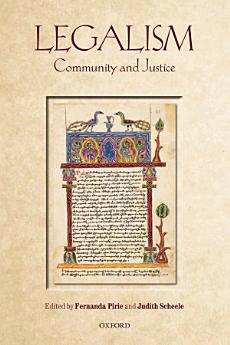Legalism: Community and Justice
Fernanda Pirie · Judith Scheele
2014年8月 · OUP Oxford
電子書
260
頁
family_home
符合資格
info
report評分和評論未經驗證 瞭解詳情
關於本電子書
'Community' and 'justice' recur in anthropological, historical, and legal scholarship, yet as concepts they are notoriously slippery. Historians and lawyers look to anthropologists as 'community specialists', but anthropologists often avoid the concept through circumlocution: although much used (and abused) by historians, legal thinkers, and political philosophers, the term remains strikingly indeterminate and often morally overdetermined. 'Justice', meanwhile, is elusive, alternately invoked as the goal of contemporary political theorizing, and wrapped in obscure philosophical controversy. A conceptual knot emerges in much legal and political thought between law, justice, and community, but theories abound, without any agreement over concepts. The contributors to this volume use empirical case studies to unpick threads of this knot. Local codes from Anglo-Saxon England, north Africa, and medieval Armenia indicate disjunctions between community boundaries and the subjects of local rules and categories; processes of justice from early modern Europe to eastern Tibet suggest new ways of conceptualizing the relationship between law and justice; and practices of exile that recur throughout the world illustrate contingent formulations of community. In the first book in the series, Legalism: Anthropology and History, law was addressed through a focus on local legal categories as conceptual tools. Here this approach is extended to the ideas and ideals of justice and community. Rigorous cross-cultural comparison allows the contributors to avoid normative assumptions, while opening new avenues of inquiry for lawyers, anthropologists, and historians alike.
關於作者
Fernanda Pirie is University Lecturer in socio-legal studies at the University of Oxford, and Director of the University's Centre for Socio-Legal Studies. An anthropologist by training, following a career at the London Bar, she has carried out fieldwork for over a decade on the Tibetan plateau. Her studies have centred on conflict resolution, social order, and tribe-state relation. She is the author of The Anthropology of Law (2013). Judith Scheele is a social anthropologist and a post-doctoral research fellow at All Souls College, Oxford. Her research focuses on North Africa and the Sahara, in particular Algeria, Mali, and Chad. Her publications include Village Matters: Knowledge, Politics and Community in Kabylia (2009) and Smugglers and Saints of the Sahara: Regional Connectivity in the Twentieth Century (2012). The authors are among the coordinators of the Oxford Legalism project, which brings together scholars from law, history, anthropology, classics, and oriental studies in a series of seminars and workshops, to compare examples of legalistic thought, texts, and practices, from across the world.
為這本電子書評分
歡迎提供意見。
閱讀資訊
智慧型手機與平板電腦
筆記型電腦和電腦
你可以使用電腦的網路瀏覽器聆聽你在 Google Play 購買的有聲書。
電子書閱讀器與其他裝置
如要在 Kobo 電子閱讀器這類電子書裝置上閱覽書籍,必須將檔案下載並傳輸到該裝置上。請按照說明中心的詳細操作說明,將檔案傳輸到支援的電子閱讀器上。





